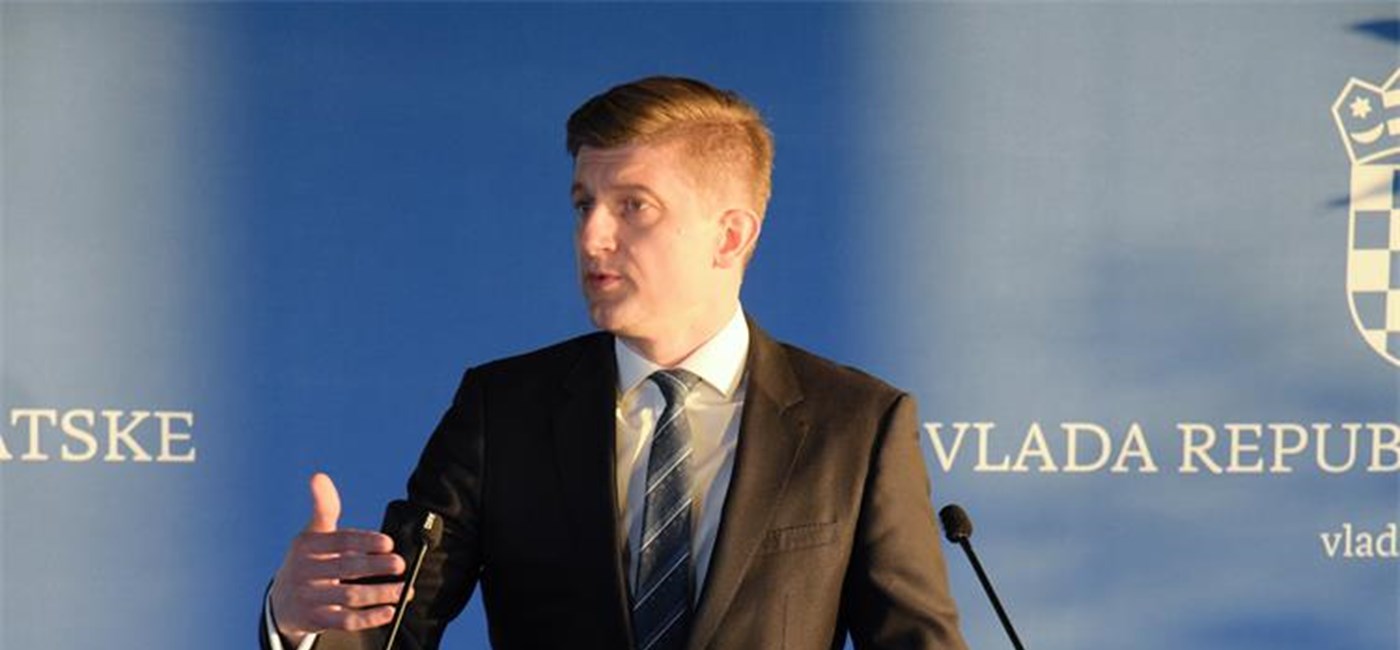Speaking to the press after a cabinet meeting, Marić recalled that a bond was issued on the domestic market ten days ago to reschedule due bonds, with eight years' maturity, 1.39% in annual yield and a 1.25% annual coupon.
Had the bond been issued today, the yield would have been around 1.7%, he said. This means that the effects of "geopolitics, geostrategy, inflation, supply chains and COVID" impact yield and interest rate trends, he added.
Marić said the government would continue to manage the public debt transparently and responsibly.
Speaking of the upcoming international bond issue, he said "we will try to find the best moment" to do it, the goal being to" reschedule existing bonds under more favourable terms than they are now."
Marić said the rise in reference interest rates was not surprising after many years of historically low rates, even negative ones. Croatia issued some of its securities on he domestic market with a negative yield, he added.
We all knew the period of historically low interest rates and big monetary relaxations could result in inflationary pressures, which coincided with COVID and supply disruptions, he said. The period ahead demands caution as well as rational thinking and action on inflation and interest rate growth, he added.
184,000 taxpayers reported foreign-earned income in 2020
Speaking of the Tax Administration's call on citizens to report their foreign-earned income, the minister said bilateral and multilateral agreements made sure that income was not taxed more than once.
Croatia has signed 66 double taxation avoidance agreements, as a member of the EU it has arrangements will all other member states and participates in many OECD initiatives, Marić said, adding that Croatia has a "very good arrangement" with the US until a double taxation avoidance agreement is signed.
Based on all that, the Tax Administration regularly exchanges data, the minister said, adding that 184,000 Croatian taxpayers generated income abroad in 2020, including 131,000 who reported a total income of HRK 7 billion.
For 95,000 of those taxpayers, the income came from pensions, including German pensions in the case of 48,000 persons, Marić said, adding that under the agreement with Germany those pensions are exempt from taxation and will not be taxed in Croatia.
Marić said there was a certain discrepancy between what was reported and what the tax authorities obtained via the exchange of data.
If foreign inome is reported, that does not necessarily mean that it will be taxed, but it must be recorded because of the many entitlements Croatian taxpayers have, such as health or social insurance, he added.
If some back taxes have to be paid, a certain interest is calculated under Croatian, EU and international laws, Marić said, adding that is somebody deliberately failed to report their income, they would be penalised.
He said the Tax Administration called on taxpayers in December to report their foreign income in order to avoid paying interest or being penalised.
Text: Hina



